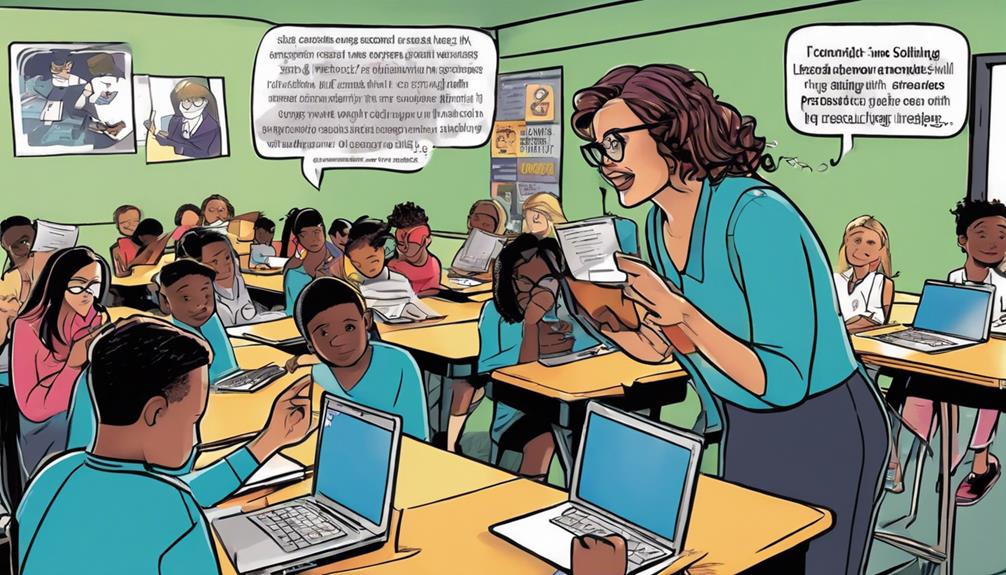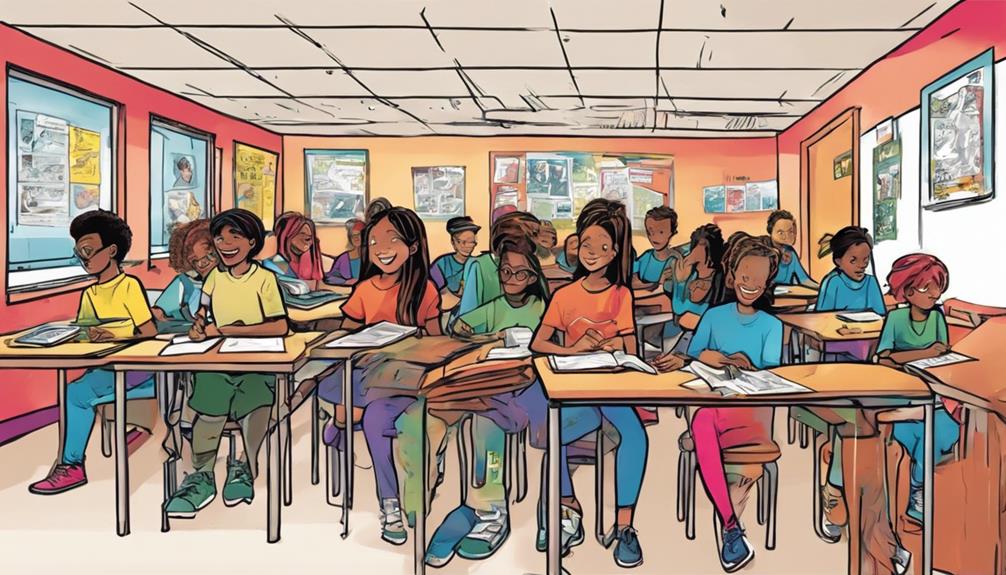Hey there, educators! Understanding proper social media etiquette is essential for teachers. Your behavior online reflects not only on you but also on your school. It is important to adhere to guidelines in order to avoid any potential issues. Posting inappropriate content can damage your credibility and relationships. It is crucial to set and maintain professional boundaries and carefully consider before posting anything. Take the time to adjust your privacy settings, monitor your accounts, and use social media to share educational resources in a positive light. Engaging with colleagues online and staying informed about social media trends will help you to have a successful online presence. For more tips on how to navigate social media like a pro, click here!
Key Takeaways
- Maintain professional conduct online to uphold credibility.
- Utilize school channels for communication with students and parents.
- Exercise caution when connecting with colleagues on social media.
- Regularly monitor and adjust privacy settings on social media accounts.
- Engage in professional online communities for support and resources.
Importance of Social Media Etiquette
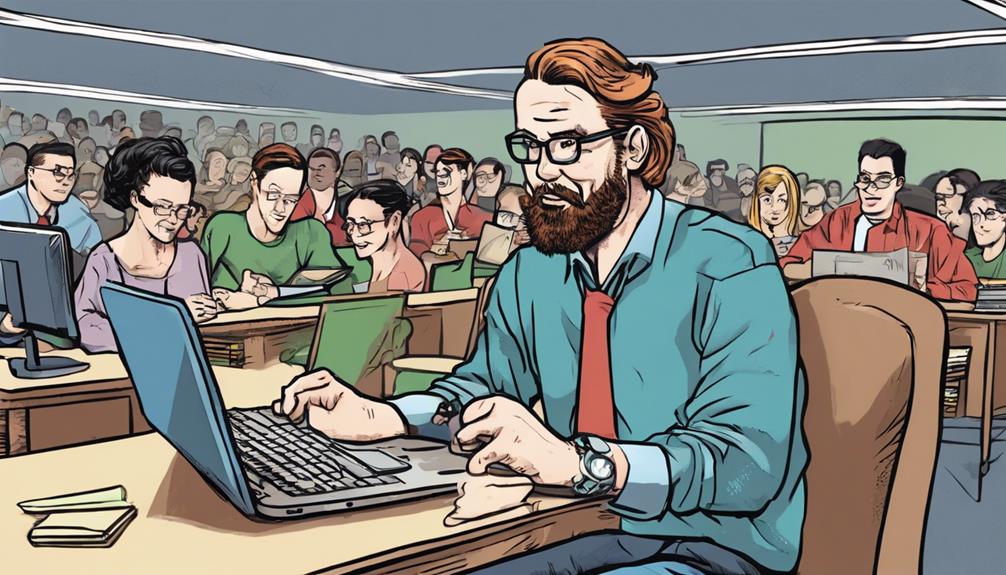
Understanding the importance of maintaining proper social media etiquette is vital for teachers in today's digital age. As an educator, your online presence reflects not only on yourself but also on your school and profession. By following social media guidelines, you can avoid potential pitfalls and guarantee a positive reputation.
Remember, inappropriate posts can harm your credibility and impact your relationships with students, parents, and colleagues. It's essential to maintain professional boundaries and exercise caution when sharing content. Refrain from adding students or parents as friends on social media and always seek permission before posting pictures of students.
Risks of Inappropriate Online Behavior
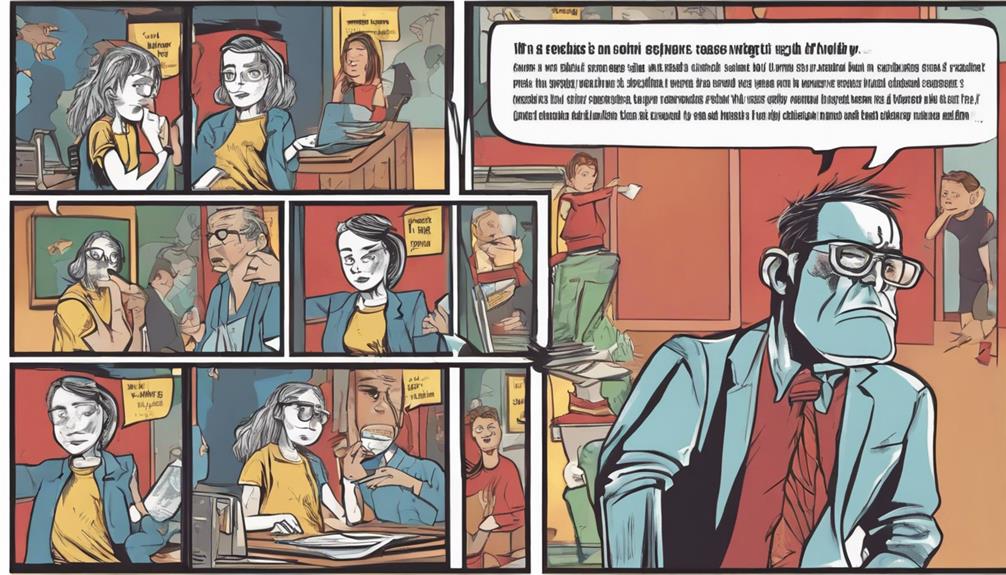
Maintaining proper social media etiquette as a teacher is essential to avoid the risks associated with inappropriate online behavior. Posting offensive content or engaging in unprofessional interactions can lead to severe consequences. Teachers have faced disciplinary actions, damaged reputations, and strained relationships due to online missteps.
Remember, the internet has a long memory, and one wrong post can haunt you for years. Stories of educators facing backlash for their online behavior are abundant, serving as cautionary tales. Protect your professional image by being mindful of what you post online.
Always think twice before hitting that 'share' button, and remember, it's better to be safe than sorry when it comes to your online presence.
Setting Professional Boundaries Online
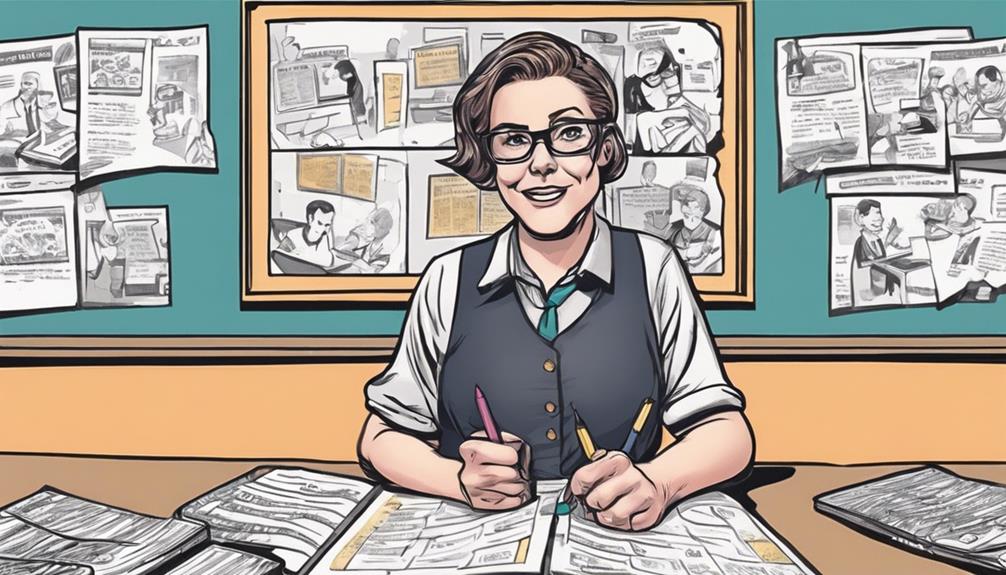
To establish professional boundaries online as a teacher, carefully consider your interactions and content shared on social media platforms. Remember, your online presence reflects your professional image.
Use official school channels for communication with students and parents to maintain a professional demeanor. It's important to exercise caution when adding colleagues on social media to separate personal and professional relationships.
Be mindful of how your social media interactions can impact workplace dynamics, as maintaining professional boundaries is essential for a harmonious work environment.
Consider setting up professional social media accounts for networking purposes to separate your personal life from your professional one. By setting these boundaries, you can navigate social media confidently and responsibly as an educator.
Mitigating Risks With Proper Practices
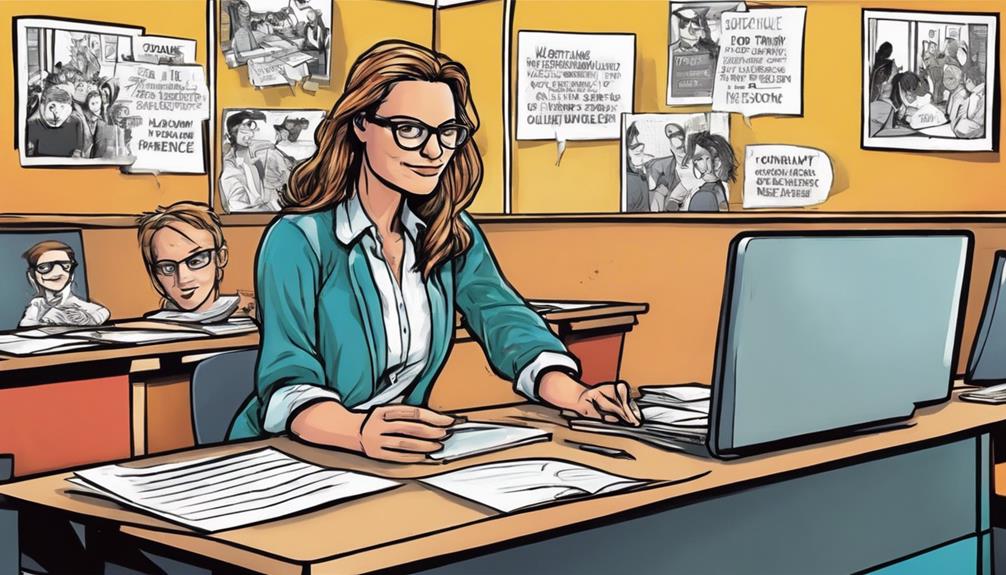
Implement proper practices to reduce risks associated with social media use as a teacher. By following guidelines and maintaining professional boundaries online, you can safeguard your reputation and protect your students. Take a look at the table below to understand key strategies for mitigating risks on social media:
| Risk Mitigation Practices | Description | Example |
|---|---|---|
| Privacy Settings | Adjust your account settings to control who can view your posts and information. | Setting your profile to private limits access to personal content. |
| Regular Monitoring | Stay vigilant by regularly checking your social media accounts for any inappropriate posts or tags. | Deleting old posts that may be deemed unprofessional is a good practice. |
| Professional Communication | Use social media for professional purposes like sharing educational resources and networking. | Joining teacher groups online can offer valuable support and resources. |
Further Resources and Recommendations
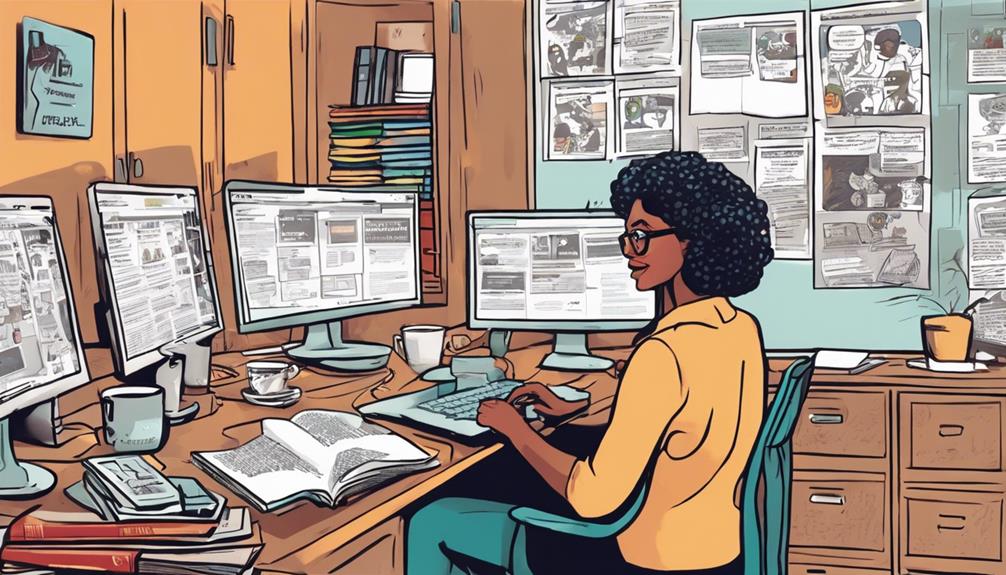
Explore additional resources and recommendations to enhance your understanding of social media etiquette for teachers.
- Read Relevant Articles:
Check out resources like 'Should Teachers Accept Facebook Requests from Parents?' for valuable insights into managing social media boundaries.
- Join Professional Communities:
Engage with fellow educators in online communities to seek support, advice, and best practices for maintaining a professional online presence.
- Stay Educated:
Keep yourself informed about the latest trends and risks associated with social media use for teachers. Share your knowledge with peers to promote responsible online behavior within the educational community.
Frequently Asked Questions
Can Teachers Interact With Former Students on Social Media?
You shouldn't interact with former students on social media. Maintaining professional boundaries is crucial. Avoid risks and potential complications by refraining from connecting with past students. Focus on upholding your reputation and protecting your career.
Is It Acceptable for Teachers to Share Personal Opinions Online?
Speaking freely online is like walking a tightrope. Your personal opinions can shape others' perceptions. Be mindful of potential consequences. Remember, what you share reflects on your professional image. Stay cautious and considerate.
Should Teachers Use Their Personal Social Media Accounts for Professional Purposes?
Yes, you should use personal social media accounts cautiously for professional purposes. Maintain boundaries, avoid sharing student-related content, and be mindful of your online presence. Remember, what you post can influence your reputation as an educator.
How Can Teachers Handle Negative Comments on Their Social Media Posts?
When handling negative comments on social media, remember that 88% of teachers faced issues due to inappropriate posts. Respond professionally, consider private messaging, educate respectfully, and if needed, seek guidance from school guidelines or online resources for constructive solutions.
Are There Specific Rules for Teachers Regarding Social Media Use During School Hours?
During school hours, remember to prioritize teaching responsibilities over social media use. Focus on student engagement and learning. Stay mindful of professional boundaries online. Avoid distractions and maintain a professional image while at work.
Conclusion
So, there you have it, folks! Remember, social media is like a virtual classroom where your every post is a lesson in professionalism.
Stay savvy, steer clear of online blunders, and let your digital footprint shine bright like a gold star on your report card.
With these tips in your back pocket, you'll be acing the social media game in no time. Keep scrolling, stay smart, and happy posting!

